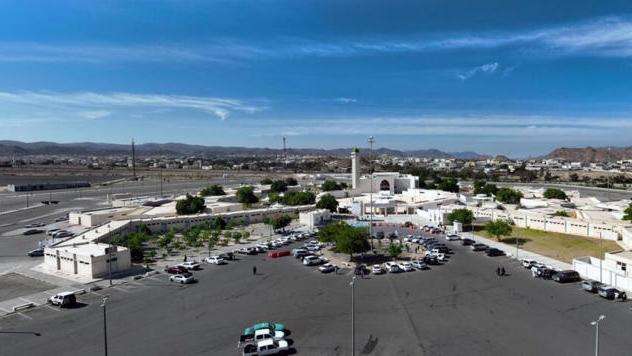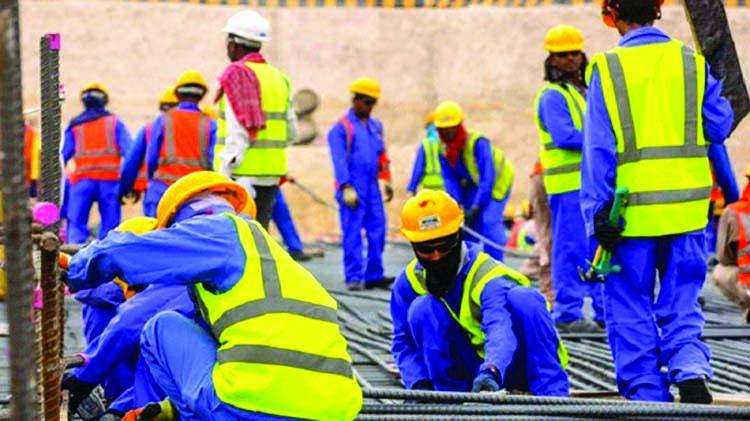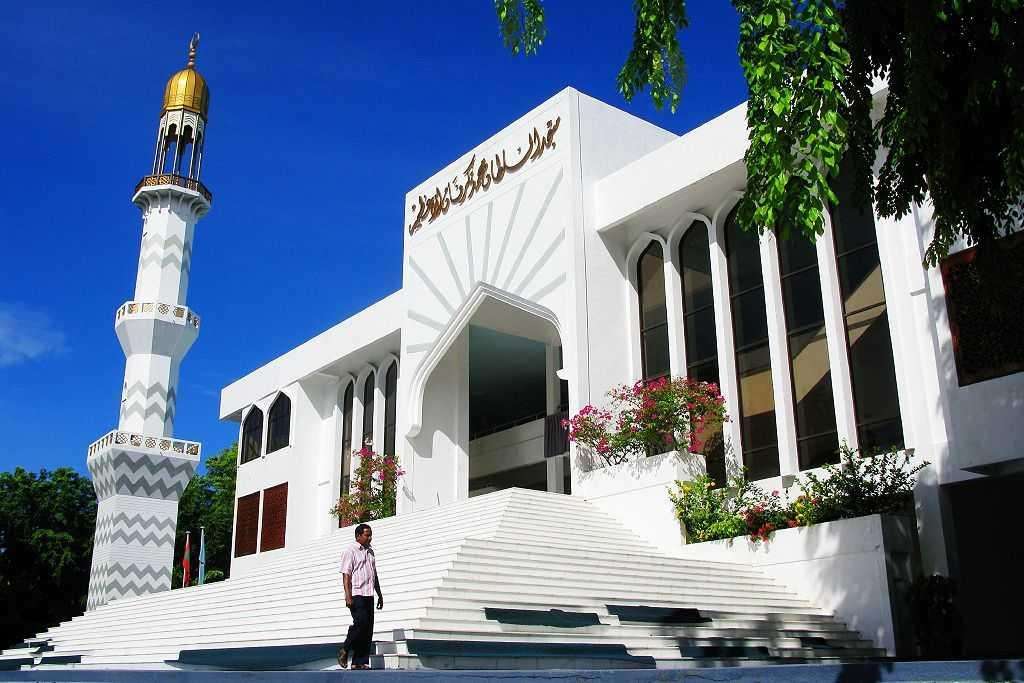The manpower export of Bangladesh crossed one million mark during the January-November period of the current calendar year as the country exported record number of workers to KSA in two successive months of October and November, sources in the Bureau of Manpower Employment and Training (BMET) said.
Bangladesh exported a total of 1032,986 workers to various markets of the world during the month of November with a record 83,733 workers to the single market of KSA.
Meanwhile, overseas employment in the KSA has been on the track in two success months of October and November, with Saudi Arabia hiring 83,582 Bangladeshis in October.
Around 1.04 lakh Bangladeshis travelled abroad for employment in October, according to data from the Bureau of Manpower, Employment, and Training (BMET).
Bangladesh achieved a record manpower export of 1305,453 workers to different countries in 2023, surpassing the previous record of 1135,873 in 2022, according to the Bureau of Manpower, Employment and Training (BMET).
Foreign job placements had been in decline since June this year due to political turmoil surrounding a student-led uprising and the closure of the Malaysian labour market.
In September, 44,249 Bangladeshis were employed in Saudi Arabia, which had suspended visa issuance for about 1.5 months due to political uncertainties.
However, visa trading and high iqama fees in the oil-rich country have become major concerns for Bangladeshi labour migration stakeholders, as migrant workers are increasingly facing early returns home.
Meanwhile, Saudi Arabia's Ambassador to Bangladesh Essa Yousef Essa Al Duhailan while talking to the Dazzling Dawn that the mission is issuing 5000-6,000 visas to Bangladeshis every day.
Essa Yousef Essa Al Duhailan said that KSA is interesting recruitment of skilled manpower like nurses in the health sector of the Kingdom of Saudi Arabia.
He said Bangladesh should concentrate on skilled power like electricians, masons, carpenters, painters and health technologists to the middle east market.
Meanwhile, Bangladesh sent abroad 9.30 lakh workers with jobs during January to November 2 this year.
“The trend of overseas employment is satisfactory so far and we are expecting to send more remittance senders with jobs this year,” Director of Bureau of Manpower Employment and Training (BMET) Mamun Sarder said.
Overall manpower export from Bangladesh is expected to increase gradually, he said, adding that as many as 930,003 workers have got overseas jobs since January, 2024.
Talking to the newsmen, Deputy Director (ongoing charge) of BMET Mohammad Jahirul Alam Majumder said the inflow of remittance has tremendously increased as expatriates’ income has also increased for the last nine consecutive months.
He said, “Out of a total of 930,003 overseas workers in the last nine months, 858,225 are male workers and are 71,778 female.
Alongside, a record amount of remittance came to Bangladesh in the current year. Expatriate Bangladeshis sent home US$2.40 billion in October, 2024, which was 21.83 percent higher than the corresponding month of the previous year.
The country received $1.97 billion from overseas workers in October 2023, according to the central bank data.
During July to October in the current 2024-25 fiscal year, expatriate Bangladeshis sent a total of $8.93 billion remittances against $6.87 billion for the same period of the previous fiscal.
Earlier in September, 2024, the country got $2.4 billion as remittances.
“We’ve been working to increase number of overseas migrant workers as well as ensure their rights and protection,” said the BMET officer.
For increasing the number of skilled manpower to grab foreign jobs, experts advised the government to invest in developing need-based skilled manpower like nurses, doctors and other healthcare workers, as its demand would increase in many countries.
The government set up many training centres in different districts along with skill development programmes to create skilful jobseekers.
The government also encouraged documented overseas employment, as an important component of earning foreign currency.
The government is providing various trainings including diploma in ship building engineering, refrigeration and air-conditioning, general mechanics, electrical machine maintenance, auto CAD 2D and 3D, welding (6G), catering, mason, Korean, Arabic, canton, Japanese language and others.
Earlier, the government declared the overseas employment sector as a “thrust sector” with maximum stress upon further expanding job markets for the Bangladeshi job seekers abroad.
"Many mega projects have been initiated in Saudi Arabia, which has created a demand for labour, and visa trading is going on taking advantage of this," Reaz-ul-Islam, immediate past senior vice president of the Bangladesh Association of International Recruiting Agencies (Baira), said.
"Fake demand letters are often issued for visa trading, resulting in more people going than necessary. And everyone is not getting work," he added.
Saudi Arabia led global construction activity in the first quarter, with a $1.5 trillion pipeline of unawarded projects, according to data analysed by JLL, a real estate services company.
The latest report from the company reveals that the Kingdom accounted for a 39% share of the total construction projects in the Middle East and North Africa region, valued at $3.9 trillion, as reported by Arab News in June this year.
Within the Kingdom's pipeline, the construction assets sector represented 62%, or $950 billion, of the overall projects, while transportation, infrastructure, and other utilities accounted for 38%, or $582 billion, as noted by JLL, citing insights gathered from MEED Projects.
Saudi Arabia is the largest destination for Bangladeshi workers, employing around 3 million, mostly in the construction and service sectors as cleaners and housemaids, according to BMET.
Shamim Ahmed Chowdhury Noman, former Secretary General of Baira, said, "There is a kind of instability in the entire labour market due to the high iqama fee, even though there is enough work. This issue needs to be resolved quickly by reducing the iqama fee."
Every day, between 350 and 400 migrant workers return to Bangladesh, many of them facing a difficult reality. Of the returnees, 70% come from Saudi Arabia, the largest destination for Bangladeshi workers, driven home by the skyrocketing cost of work permits, according to the Brac Migration Program.
Known as the iqama fee, it now stands at an eye-watering 11,000 Saudi riyals per year – more than the annual income of many employed in domestic work, construction, or cleaning.
"Employers struggle to pay such large sums, especially for 100 or 1,000 workers at a time," said Noman Chowdhury. He further stated that this situation has worsened over the past year and a half, with 60-70% of foreign workers, including Bangladeshis, now lacking valid iqamas.
The Baira leader has written to Chief Adviser Professor Muhammad Yunus, urging him to leverage his international stature to persuade Saudi authorities to reconsider the iqama fees.
After Saudi Arabia, Qatar recruited the second-highest number of workers at 6,507, followed by Singapore, Kuwait, and Jordan.
Remittance inflows to Bangladesh reached $2.39 billion in October, marking a significant 21.32% year-on-year increase from $1.97 billion last year, according to Bangladesh Bank data.
This rise follows a trend seen over recent months, with remittances in September hitting a similar figure of $2.4 billion.
Though the price of the dollar in the remittance market has slightly declined in the past two weeks, it has not significantly impacted inflows.
Stakeholders attribute this to the confidence remitters have in the current government, as they observe a noticeable decrease in capital flight from the country.
Meanwhile, Saudi Arabia's Ambassador to Bangladesh Essa Yousef Essa Al Duhailan paid a courtesy call on Chief Adviser Professor Muhammad Yunus at the State Guest House Jamuna recently.
He praised the leadership of Prof Yunus saying that he is capable of leading the country towards prosperity.
The chief adviser called Saudi Arabia a “very important friend of Bangladesh” and recalled his visit to the country last year for the World Football Summit where he addressed the Saudi Arabian women’s football team highlighting the sports’ incredible power to transform the world.
The Saudi envoy noted that some 3.2 million Bangladeshis are currently working in Saudi Arabia making the vital contribution to their country.
“The Bangladeshi migrant workers send annually US$ 5 billion in remittance through official channel and another US$ 5 billion through unofficial channel. If the money can be sent through official channel, they could help significantly in the economic growth of Bangladesh, Al Duhailan said.
“They are hard working people and very religious,” he added.
The ambassador raised the issue for renewal of the passport of 69,000 undocumented people who had been living in Saudi Arabia since the 1970s.
He called for increased economic relationship between the two countries and said that the Saudi Arabian business people were interested to invest more in Bangladesh, including investment in logistics, services sector and renewable energy by RSGT international and Acqwa Power.
Al Duhailan said the country had introduced Makkah Road Initiative to ease immigration procedures for Hajj and Umrah pilgrimages.
Last year, some half a million Bangladeshi performed Umrah, he informed the chief adviser.
Prof Yunus appreciated the Saudi leadership in strengthening the bilateral engagements with Bangladesh, adding that his government is looking forward to continued cooperation from Saudi Arabia.


_7.jpg)

_8.jpg)



.svg)

